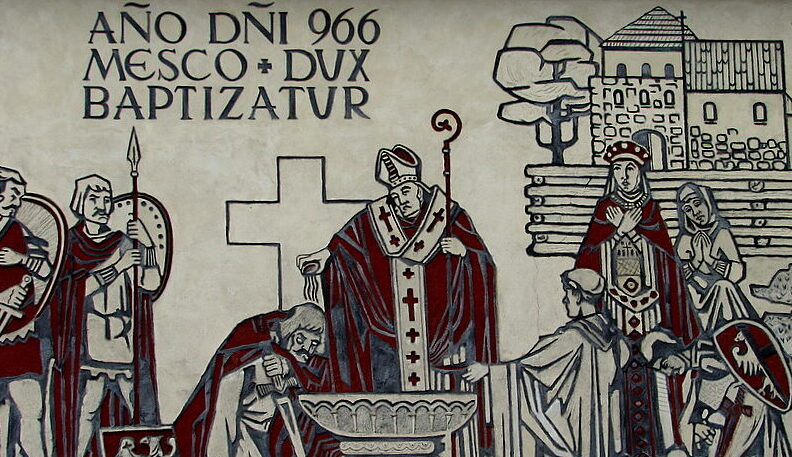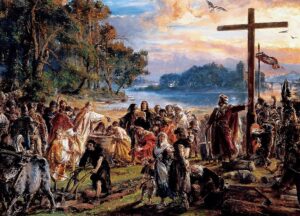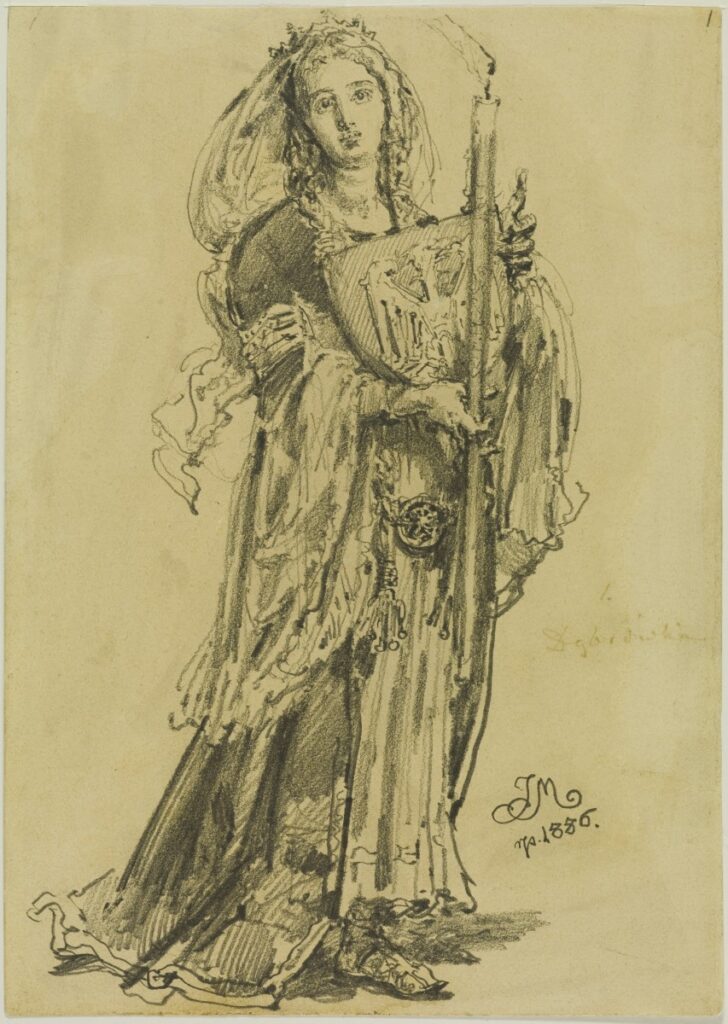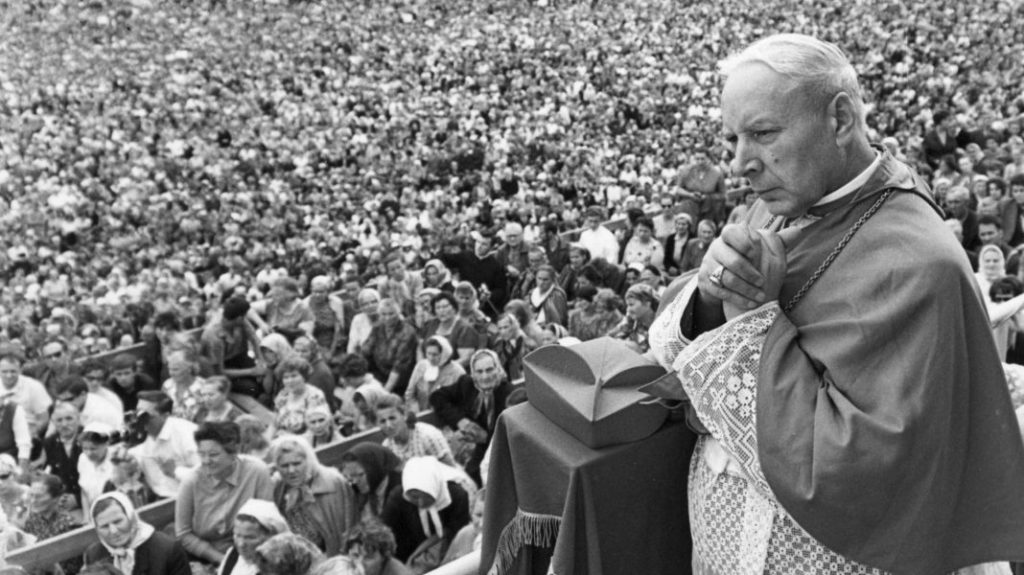1055 Years Ago, Poland Adopted Christianity


Contemporary mural in Gniezno commemorating the baptism of Poland, wikimedia (public domain)
The history of Christianity in Poland is 1055 years old. Although it was not possible to celebrate the 1000th anniversary of Poland’s baptism on a large scale because of the obstacles under communist rule, sovereign Poland has been celebrating the consecutive anniversaries of its baptism for several years.
The assumed date of Poland’s baptism is the year 966, when Prince Polan Mieszko I was baptized on Holy Saturday, which fell on April 14th.

Christianization of Poland A.D. 966. by Jan Matejko, wikimedia (public domain)
In 2016, the celebration of the 1050th anniversary of Poland’s baptism, in connection with the pilgrimage of Pope Francis, had a special character.
As part of this year’s celebration of the Baptism of Poland, Archbishop Stanisław Gądecki, President of the Polish Bishops’ Conference, consecrated the altar in the church of Our Lady in Summo, Poznan. Outside the renovated church, there is a replica of the oldest Polish chapel, built for Mieszko I and his wife Dobrawa.

Dobrawa, Mieszko’s wife who played a major role in Poland’s conversion to Christianity, wikimedia (public domain)
According to historical sources, including the 12th-century chronicler Gallus Anonymus, it was Dobrawa, the Czech princess, who persuaded Mieszko I to adopt Christianity. Both the marriage and his baptism had a political background. The chronicles of Widukind, Thietmar, Gallus, and other sources clearly show that Mieszko’s baptism was the result of an alliance between the Prince of Polan and the Christian Czech court. The process of Christianization also meant the inclusion of the nascent Polish state in Latin Europe’s civilization sphere.
The celebration of the Baptism of Poland was important in the history of Poland in the 20th century. Researchers of the communist period of the Polish People’s Republic write about the clash between “the Millennium and the Thousand-Year Anniversary”—the first term was used by the Church to refer to the 1000th anniversary of its baptism, and the communist authorities used the second to highlight the thousand years of Polish statehood.

BP KEP
Card. Stefan Wyszyński was imprisoned for 3 years (1953-1956). During that period, in prison, he composed the Great Novena, then celebrated from 1957 to 1966 as a program of religious renewal of the nation. Researchers also emphasize that the Great Novena, in addition to its spiritual aspect, was a form of political manifestation against the communist authorities.
This novena was accompanied by the pilgrimage of a copy of the miraculous painting of Our Lady of Częstochowa to parishes throughout Poland.
Another subject of the anti-church campaign of the authorities of the Polish People’s Republic was the letter that the Polish bishops addressed to the German bishops inviting them to participate in the celebration of the Millennium of Poland’s Baptism. The letter contained an appeal for mutual forgiveness of wrongs and faults—we forgive, and we ask for forgiveness—provided the communists with fuel for yet another campaign against Primate Wyszyński and the bishops.
The Millennium celebrations culminated on May 3rd, 1966. On that day, Pontifical High Mass was celebrated at Jasna Góra, in Częstochowa. During it, the Primate of Poland, Cardinal Stefan Wyszyński, read “Act of Poland’s consecration into the maternal slavery of Mary, Mother of the Church, for the freedom of Christ’s Church”.
The five-hour ceremony began with the erection of the Miraculous Image of Our Lady of Częstochowa and the portrait of Pope Paul VI, who was absent, at the top of Jasna Góra’s ramparts. The Polish Church had sent him an official invitation, but the communist authorities did not consent to the Holy Father’s visit. The empty papal throne was decorated with a bouquet of white and yellow roses, and the portrait of Paul VI was also placed there. The Mass was presided by the then Archbishop of Krakow, Karol Wojtyła, later Pope John Paul II.
In July 2016, Pope Francis celebrated the 1050th anniversary of Poland’s baptism. He presided over a solemn Mass in Częstochowa in thanksgiving for 1050 years of Christianity in Poland. In his homily, the Holy Father spoke of “the many sons and daughters of your nation: martyrs who made the defenseless power of the Gospel shine forth.” At this point, he invoked the “gentle and determined proclaimers of Mercy,”—referring to Saints Faustina Kowalska and John Paul II.
In 2019, the Polish parliament, taking into account the importance of Mieszko I’s decision, considered to be the beginning of the Polish State, adopted an act establishing April 14th as the Day of Baptism of Poland.



Dodaj komentarz